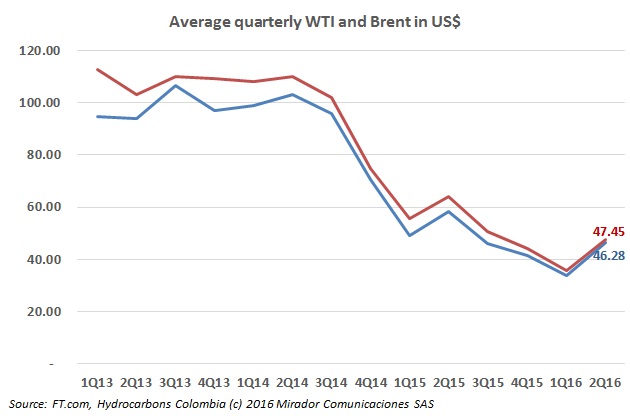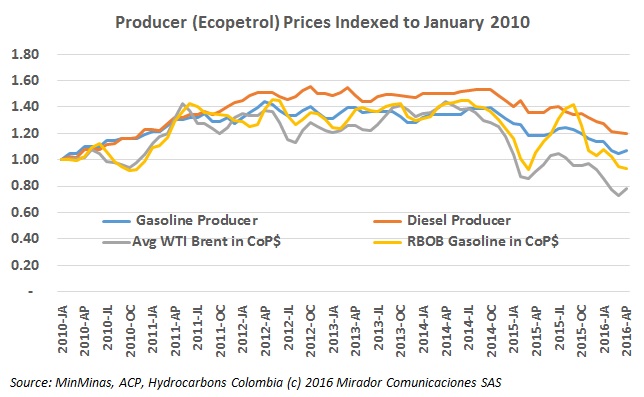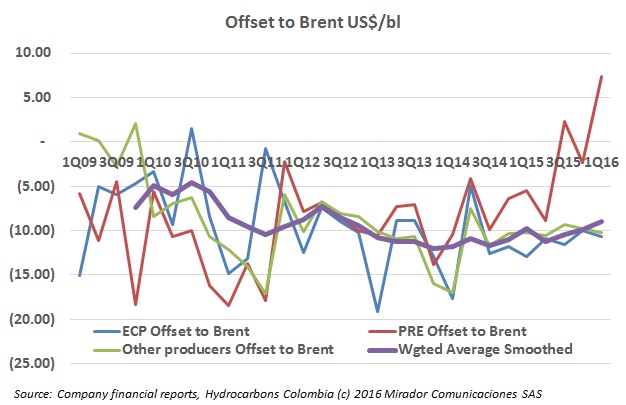A report from the United Nations Development Program (UNDP) said that the government has been able to avoid the worst consequences of a fall in oil prices, but that with a price of US$60/barrel there are worrying signs for the midterm future.

For the first time in several months, the Ministry of Mines and Energy (MinMinas) has announced a change in fuel prices for the month of August: gasoline will rise slightly while diesel will fall, which the ministry says is a result of biofuels costs.

There is much said in the press about Colombia’s cost of fuel, most of it alleging a high drain on Colombian wallets. But a comparison of the costs in other Latin American countries show that it is far from being one of the most expensive countries.
Ecopetrol (NYSE:EC) through its subsidiary Ecodiesel, has helped create 10,000 jobs and cleaner biofuels in Barrancabermeja thanks to an alliance with different palm oil firms in the Middle Magdalena.
Following accusations from the retail fuel station association Fendipetróleo that Terpel is taking advantage of its status as a wholesaler and retailer of fuel to crush small businesses with an unfair advantage and low prices, the firm’s president Sylvia Escovar responded.

Tomás González left his MinMinas post in March and April’s gasoline price announcement was delayed by several weeks. May’s was on time but in June prices were frozen until further notice. Now it appears if July’s are as well.

Oil prices rallied in 2Q16 giving creating the first sequential increase in a year. Brent closed above US$50 on July 1st (our last weekly measurement of the quarter) but prices are still below last year’s average.
Accusations of unfair competition, of a monopoly and aggressive tactics against family-owned fuel stations have made press, with a particular emphasis on Terpel, which critics say has crossed a line as a wholesaler and retailer.

The Minister of Mines and Energy (MinMinas) Germán Arce confirmed that the ministry is open to studying a proposal from the truckers association to lower the price of diesel, as a trucker strike drags on since the beginning of the month.

The fall in global crude benchmarks took Colombia’s realized sales price with it. According to figures from the Colombian Petroleum Association, Colombia’s price averaged US$26/barrel during the first quarter of the year.